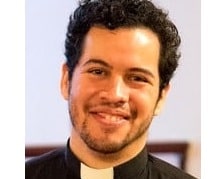I am weary of roaming about the world
I am weary of roaming about the world,
Measuring its expanse, and I’m not yet done.
I walk with beasts of the forest
And I hover like a bird of prey over the peaks of the mountains.
My feet run about like lightning to the far ends of the earth,
And I move from sea to sea.
Journey follows journey, but I find
No resting place, no calm repose.
How far must my feet, at Fate’s behest,
Bear me o’er exile’s path, and find no rest? …
On God I wait,
Unto whose mercy there is no restraint –
And whose decree
Can break the shackles and unbar the gate,
And set the prisoner exile free.
Moses Ibn Ezra, translated by Salo Wittmayer Baron, in The Heart of a Stranger: An Anthology of Exile Literature (Pushkin Press, 2019)
Home is the kind of thing that people can’t help but have feelings about.
For some, a sense of place accompanies it; a kind of belonging that lives deep within their bones. For others, home is a hope deferred: a complicated thing, a dangerous memory… a desire that has yet to take shape.
A lot of Scripture takes place with home in mind, but it rarely leaves us there. Abram must leave Ur if he is to become Father Abraham, whose descendants are as numerous as the grains of sand on the seashore. The people of Israel must wander through the wilderness before arriving at the Promised Land. In due time, their exiled heirs weep over Zion by the streams of Babylon. The disciples must leave the places they call home and take Jesus’ message elsewhere—to Jerusalem, to Judea and Samaria, and even to the ends of the earth.
We often talk about the Bible as a testament to a certain way of life: a story and a set of values that we call home. And yet this book was written by people whose primary experience was the instability of exile, not the permanence of home. It was written by people for whom displacement was the norm, not the exception—by those for whom the desire for a place to call home was acutely felt.
What does it mean to read these texts with displacement in mind? What does it mean to become a people who make a home for themselves in exile—in that place between the world as it is and the world as it should be?
At St. Paul’s, we have a sign right above our front doors that says “All Are Welcome”. In a highly-polarized, fractured society, this is an important message. And yet it is also important to remember just what that welcome means. We do not welcome people into “our” church home, you see—rather, it is God who welcomes all of us. God calls us into this community, not because we’ve arrived at our final destination, but because we must take the journey there together.
Our true home is still beyond our reach, but the journey is well-worth the effort. And we can’t get there without you—or whoever else decides to walk through the doors.
— Fr. Javier


